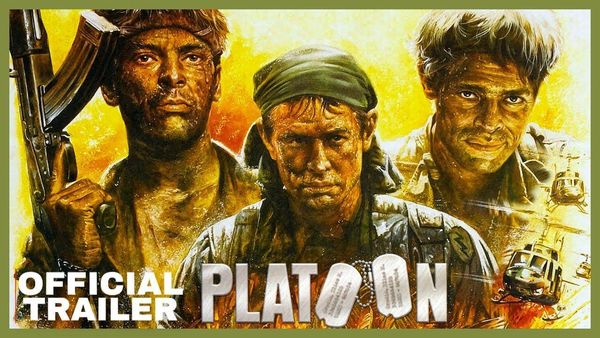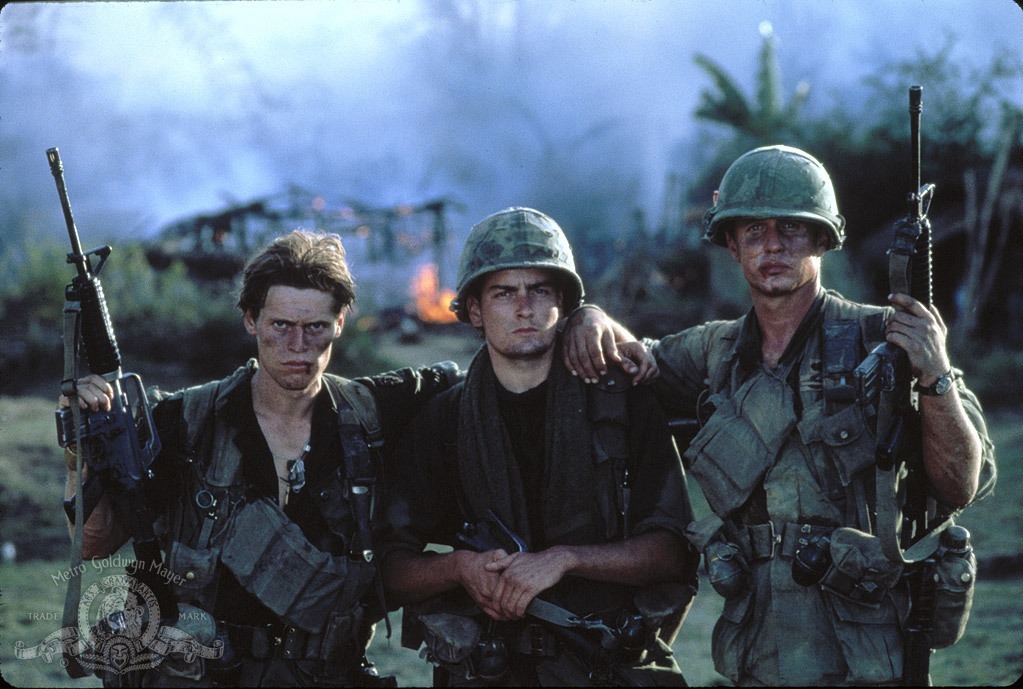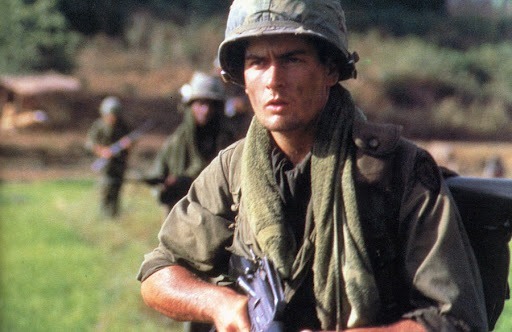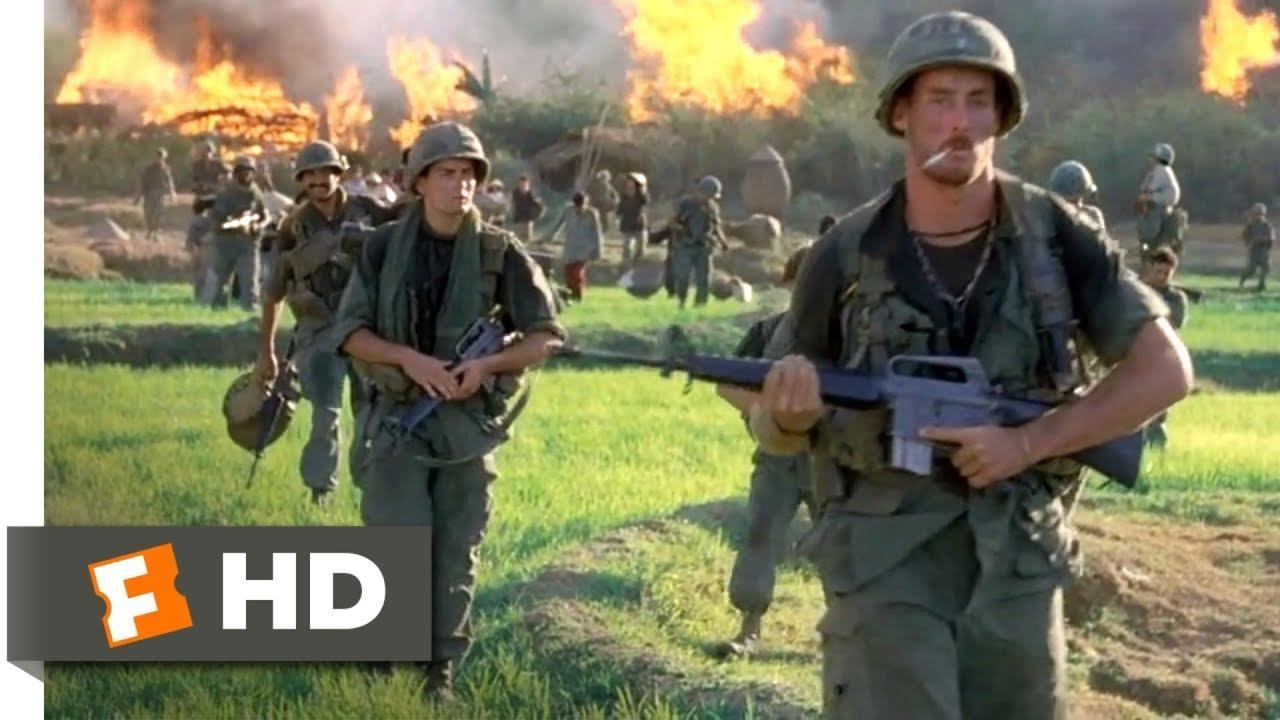Platoon (1986)



of his platoon. The central conflict revolves around two opposing sergeants: the compassionate and morally driven Elias (Willem Dafoe) and the ruthless and authoritarian Barnes (Tom Berenger). Their clashing ideologies and leadership styles reflect the broader chaos and division within the platoon, mirroring the complex and morally ambiguous nature of the Vietnam War.
Direction and Cinematography:
Oliver Stone’s direction infuses “Platoon” with a raw and gritty portrayal of warfare. The film’s cinematography captures the oppressive and claustrophobic atmosphere of the jungle, as well as the intense and chaotic nature of battle. Stone’s meticulous attention to detail and commitment to authenticity ensure that the film provides a realistic and immersive experience of the soldiers’ harrowing environment.

Themes and Impact:
“Platoon” delves into themes of morality, camaraderie, and the psychological toll of combat. It explores the moral dilemmas faced by soldiers and the impact of war on their mental and emotional well-being. The film stands out for its nuanced examination of these themes, offering a poignant and powerful commentary on the human cost of conflict.
Performances:
The film features standout performances, with Charlie Sheen delivering a compelling portrayal of the disillusioned young soldier. Willem Dafoe’s portrayal of Elias brings a sense of humanity and moral complexity to the film, while Tom Berenger’s portrayal of Barnes adds a menacing and authoritarian edge. The supporting cast also contributes to the film’s powerful depiction of the Vietnam War experience.

Legacy:
“Platoon” is widely regarded as a landmark film in the war genre, praised for its realistic depiction of combat and its exploration of the moral and psychological complexities of war. It remains a powerful and influential film, offering a sobering and evocative glimpse into the harsh realities of war and the moral ambiguities faced by those who endure it.











